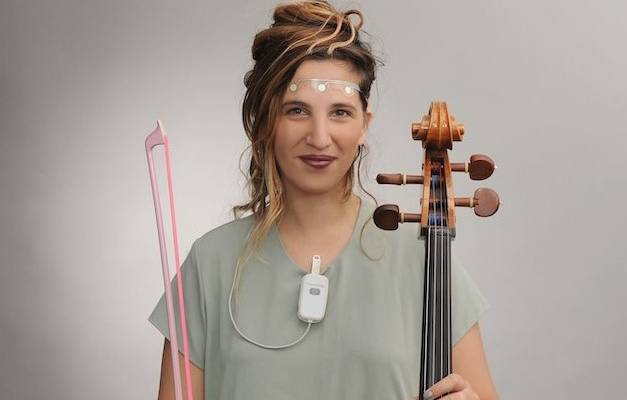This groundbreaking Israeli method could easily be implemented by any staff member in any clinic, without special training.
By Abigail Klein Leichman, Israel21c
Measuring 15 minutes of electrical activity in the brain while performing simple musical tasks can detect cognitive decline in old age, say researchers at Tel Aviv University.
The groundbreaking method they developed can easily be implemented by any staff member in any clinic, without special training.
PhD student Neta Maimon, from the School of Psychological Sciences and the Buchmann-Mehta School of Music, created a short test in which the subject performs a series of musical-cognitive tasks according to instructions heard through earphones.
The tasks include, for example, pressing a button each time any melody is played or pressing it only when the violin plays.
In addition, the test includes musically guided meditation designed to bring the brain to a resting state, as this state is known to indicate cerebral functioning in various situations.
As they do the tasks, the subjects are connected to a portable EEG device from Israeli startup Neurosteer.
Maimon, who specializes in musical cognition, explained that music is known to be a quick mood stimulant and can be cognitively challenging when people try to concentrate on different aspects of the music while perform a particular task.
Accordingly, the researchers hypothesized that musical tools would challenge the subjects enough to test the brain’s frontal activity as well as raising their spirits, thus enhancing their performance on the test.
Maimon and Lior Molcho from Neurosteer report in the journal Frontiers in Aging Neuroscience that “We have actually succeeded in illustrating that music is indeed an effective tool for measuring brain activity. The brain activity and response times to tasks correlated to the subjects’ cerebral conditions. More importantly, all those who underwent the experiment reported that, on the one hand, it challenged the brain, but on the other it was very pleasant to perform.”
Maimon hopes this method will enable routine monitoring and early detection of cognitive decline to provide treatment and prevent rapid, severe deterioration.
“This method is of special importance today due to the increase in longevity and accelerated population growth, particularly among the elderly. … Our method could pave the way towards efficient cognitive monitoring of the general population, and thus detect cognitive decline in its early stages, when treatment and prevention of severe decline are possible.”
Do You Love Israel? Make a Donation - Show Your Support!
Donate to vital charities that help protect Israeli citizens and inspire millions around the world to support Israel too!
Now more than ever, Israel needs your help to fight and win the war -- including on the battlefield of public opinion.
Antisemitism, anti-Israel bias and boycotts are out of control. Israel's enemies are inciting terror and violence against innocent Israelis and Jews around the world. Help us fight back!




